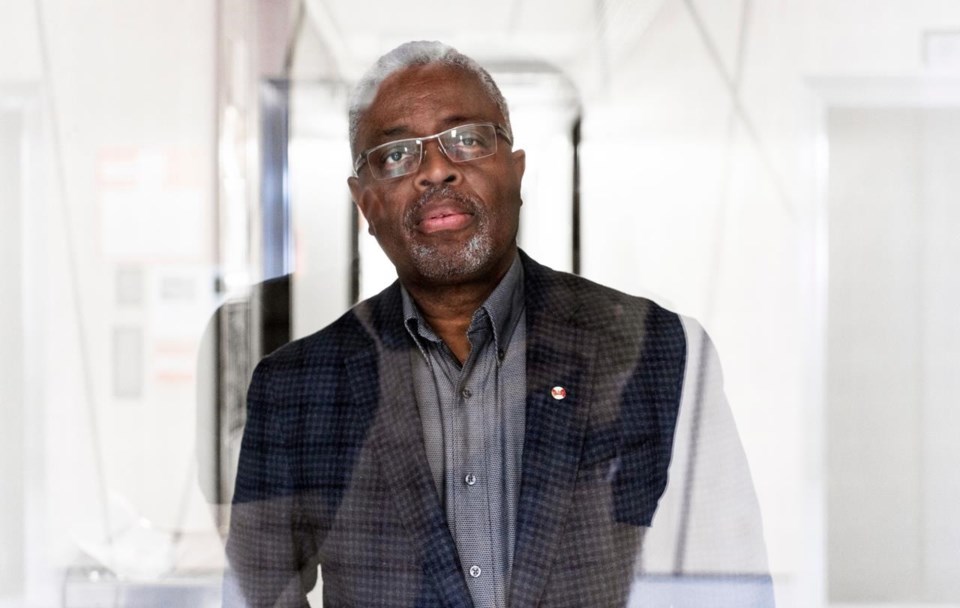The Department of National Defence has awarded a grant to a University of Alberta professor to conduct a deep dive into the extent of white supremacy in the Canadian Armed Forces.
Andy Knight, a professor of international relations and the school's first provost fellow in Black excellence and leadership, made a proposal to the federal department last fall in which he drew attention to racism in the military.
Over the next year, he is to assess just how entrenched radicalization, anti-Semitism, xenophobia and anti-Black sentiments are in the Forces and come up with a suggested policy to respond.Â
Knight said he decided to pursue the research after noting that there were a number of active Canadian soldiers participating in last year's "Freedom Convoy" protest in Ottawa, which began with anger over COVID-19 vaccine mandates for cross-border truckers, but attracted some more radical elements as it grew.Â
"It piqued my interest," Knight said in an interview.
In addition to interviewing military officials, Knight said he plans to assemble experts and policymakers from diverse backgrounds to understand what attracts white supremacists to the armed forces and devise strategies to weed them out.Â
He said it seems that white supremacists are "infiltrating the military in Canada".
"That is concerning to me because we expect the military to be there to protect the Canadian people," he said.
"When you have individuals who are directly in opposition to the Canadian government, obviously it is of concern and that's one of the reasons I thought it would be useful to take a deeper dive into why this is the case."
Knight's research follows a scathing report on racism in the Forces last year which said the military isn't doing enough to detect and prevent white supremacists and other violent extremists from infiltrating its ranks.Â
It was the result of a yearlong review by a panel of retired Forces members and followed a spate of incidents linking some military personnel with violent extremism and hate groups, including white supremacists and neo-Nazis.Â
Knight said at this point it's clear that there are individuals who follow the ideology but it's too soon to say whether it's widespread or limited to just certain segments.
"My study will focus on the embedded culture in the military and establishment that allows individuals that have that mindset to be attracted to the military," he said.
"How do these individuals get attracted to the military and how do you root that out in the future?"Â
Knight said expects co-operation from military brass but realizes that getting input from the rank-and-file within the Forces won't be easy.
"I think there's already some pushback. It's the kind of subject matter that hits a raw nerve, particularly in the military, right? No one wants to believe that the military has a culture and attracts that type of individual."
Knight said he has been approached by a couple of former members of the military who are willing to talk to him and he hopes to get some people still serving to take part as well.
He said those taking part will remain anonymous.
Knight has one year to deliver his report, along with recommendations for change.
This report by The Canadian Press was first published Jan. 12, 2023.
Bill Graveland, The Canadian Press




